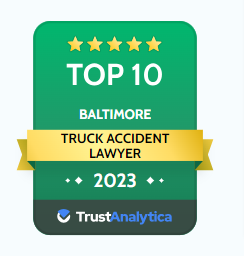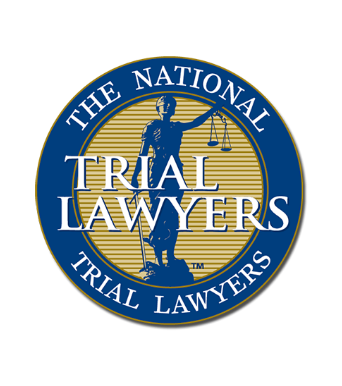Fairland, MD Personal Injury Lawyer
Serious injuries have serious consequences. Aside from difficult medical procedures and lifestyle changes, you may also have large hospital bills that need to be paid, difficulty keeping a job or doing basic activities, and dealing with the mental stress of getting seriously injured. Indeed, a grievous injury can have an effect far beyond any physical damage someone else’s negligence caused.
Luckily, our lawyers can help you get back to where you need to be. We have experienced, professional attorneys who are ready to fight hard for the best outcome for your case.
Call Rice, Murtha & Psoras at (410) 694-7291 to have our personal injury attorneys examine your case for free.
How Our Personal Injury Lawyers Can Help You in Fairland, MD
If you are injured and considering bringing a legal claim, you may be wondering what exactly our personal injury lawyers can do for you. The duties of a lawyer involved in a personal injury lawsuit go far beyond merely trying to convince the judge and jury of your position at trial. In fact, much of a lawyer’s work happens well before trial, and it is often through superior preparation and diligence that attorneys generate successful outcomes for their clients.
Collect Evidence
One important function of lawyers before a trial is to gather, compile, and make sense of all of the information getting thrown their way. Information about a case will come from many different sources. First, any information you have about the accident will form the initial basis of the attorney’s plans. Second, before trial, lawyers will talk to relevant parties about the case. This includes eyewitnesses, medical professionals, experts in relevant areas, and the defendants themselves. Finally, lawyers for both sides of a case will exchange information so that the lawsuit is working off of the same base of facts.
The process by which lawyers compile and make sense of all this information is called “discovery.” This process is less adversarial than one might expect. The judge and lawyers for both the plaintiff and defendant will often be in communication and cooperate with each other to varying degrees during this process. Most attorneys will turn over most of the information the other side asks for so that there are no surprises during the case. Attorneys can, of course, withhold certain information that is privileged or not relevant to the case within reason.
Find Out Who to Sue
Another important thing lawyers do when forming a legal argument is figuring out who the best party, or parties, to sue are for your lawsuit. This is crucial to the success of your case because if you do not sue the right person or entity, you will not be able to recover damages. Courts only allow plaintiffs to recover damages from defendants who caused their injuries, so filing against the wrong defendant will prevent you from doing that.
Prepare Your Lawsuit
Our competent, professional attorneys will make sure to have your lawsuit filed with the appropriate court apparatus and within the correct time frame. In Maryland, personal injury lawsuits must be filed within three years of the injury occurring per Md. Code, Cts. & Jud. Proc. Art., § 5-101. After that time, a court will not hear your case because the “statute of limitations” – the time period within which you are allowed to file a lawsuit – has run out. For that reason, it is very important to talk to an attorney as soon as possible when you are injured.
Damages You Can Ask for in a Fairland, MD Personal Injury Lawsuit
When you file a lawsuit, one of the things you specify is what you are asking for in damages. Damages are the court’s way of compensating plaintiffs for their injuries. The idea is to “make the plaintiff whole” again by putting them in as close a position as possible to where they were before they got injured. Often, the extent of a plaintiff’s injuries does not make this literally possible, so financial compensation is used as a substitute.
Damages can be divided into three categories: economic damages, non-economic damages, and punitive damages.
Economic Damages
Economic damages are based on things with actual monetary value. This covers items like hospital bills, lost wages, and known long-term medical care. A primary purpose of economic damages is to compensate plaintiffs for any excessive bills they need to pay because of their injuries. So, while economic damages may “fix” a plaintiff financially, they will not be the entire damages amount because financial hardship is not the only problem a plaintiff will likely face after an accident that got them injured.
Non-Economic Damages
Non-economic damages are more abstract and harder to pin down than economic damages. This area covers things like pain and suffering, mental anguish, and, in wrongful death cases, loss of consortium. Since each plaintiff will experience an injury differently, there is no way to determine what is the right amount of damages in general for a plaintiff’s pain and suffering. You and our lawyers will have to decide on an amount that makes sense for your situation.
Punitive Damages
Unlike economic or non-economic damages, punitive damages are based on what the defendant has done, not the condition of the plaintiff. You need to request punitive damages in your initial complaint, and you will also need to prove that the defendant acted in such a way as to warrant them. These damages are meant to punish defendants who have acted in an especially bad way.
Call Our Fairland, MD Personal Injury Lawyers
Call Rice, Murtha & Psoras’s personal injury attorneys at (410) 694-7291 to get a free case review.













